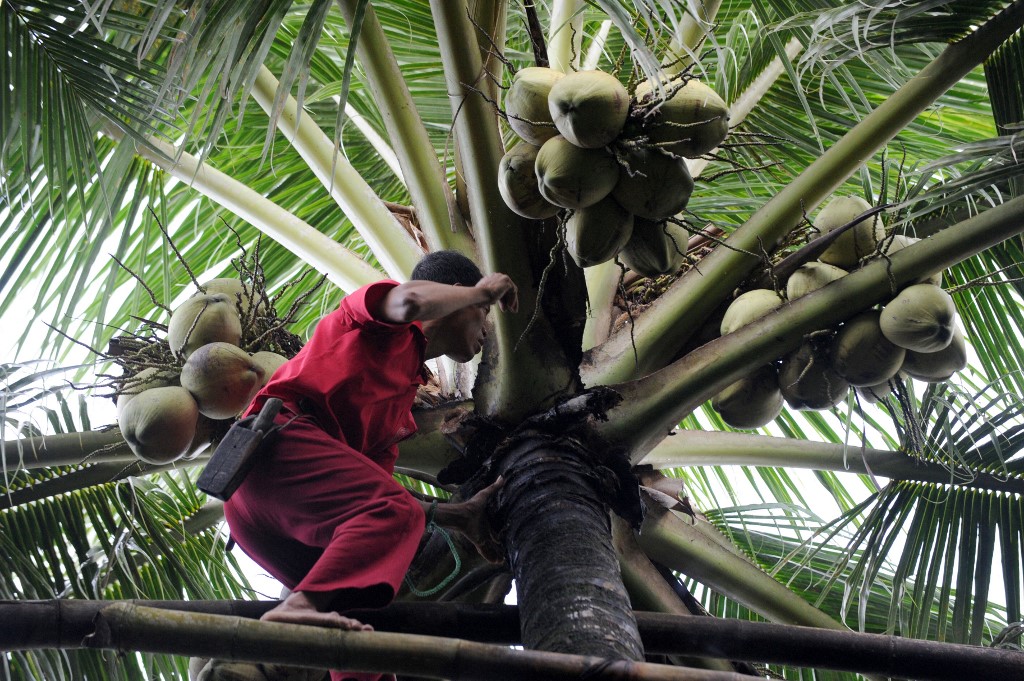In many ways, 21st-century farmers are not so different from their predecessors. They are hardworking tillers of the land and animals. What sets them apart is they incorporate the latest breakthroughs in science and technology to increase efficiency, which leads to higher yields.
They recognize that innovation is more critical in modern agriculture than ever before to face the challenges of aging farmers and labor shortages, with the younger generation shunning the sector. Solutions are needed to meet these challenges.
The Philippine Center for Postharvest Development and Mechanization Director Dr. Dionisio G. Alvindia said the government is introducing technology into the local coconut sector and a slew of other innovations to help ramp up production.
“The shared facilities set-up will comprise of the building, processing equipment, and machinery, hauling and transport vehicle/tractor/truck, coconut harvesting equipment, basic testing instruments, and other ancillary equipment such as but not limited to power lines, transformers, water pumps, piping, fittings, flanges, valves, wastewater treatment and the like,” he said.
Dr. Alvindia said the facilities would have various equipment to allow coconut farmers to enter the commodity’s value chain conveniently.
Under Republic Act 11524 or the Coconut Farmers and Industry Trust Fund Act, PhilMech is mandated to establish shared facilities for coconut farmers cooperatives and Local government units using 10 percent of the P75-billion coconut fund.
The shared facility will be defined as a community-based social enterprise, applying practical solutions to coconut processing, production, and distribution towards developing the local coconut industry.
These processing plants are shared or jointly used, owned, or operated by the farmers’ cooperatives for the manufacturing, packaging, labeling, storing, and marketing of selected coconut products and/or by-products for retail and wholesale distribution to various clients.
Using the Value Chain Approach, the proposed shared facilities or business models that will enhance the efficiencies of the value chains include the integrated white copra Centrals, copra buying stations, and integrated coconut processing centers intended to produce coconut products.
The proposed shared facilities or business models can also have cacao and coffee processing centers, dairy milk, and livestock-based processing centers for farmers who will produce other food crops and livestock in their coconut farms.
Alvindia said the agency has so far created a village-level coconut water processing technology and system and the Greenhouse Solar Tunnel Dryer that coconut farmers’ cooperatives can quickly adapt.
The coconut water processing technology can process 2,000 nuts and approximately 2,000 bottles of coconut water per day.
The multi-commodity solar tunnel dryer can dry coconut meat using heat from the sun while producing white copra and protecting the product from contamination.
